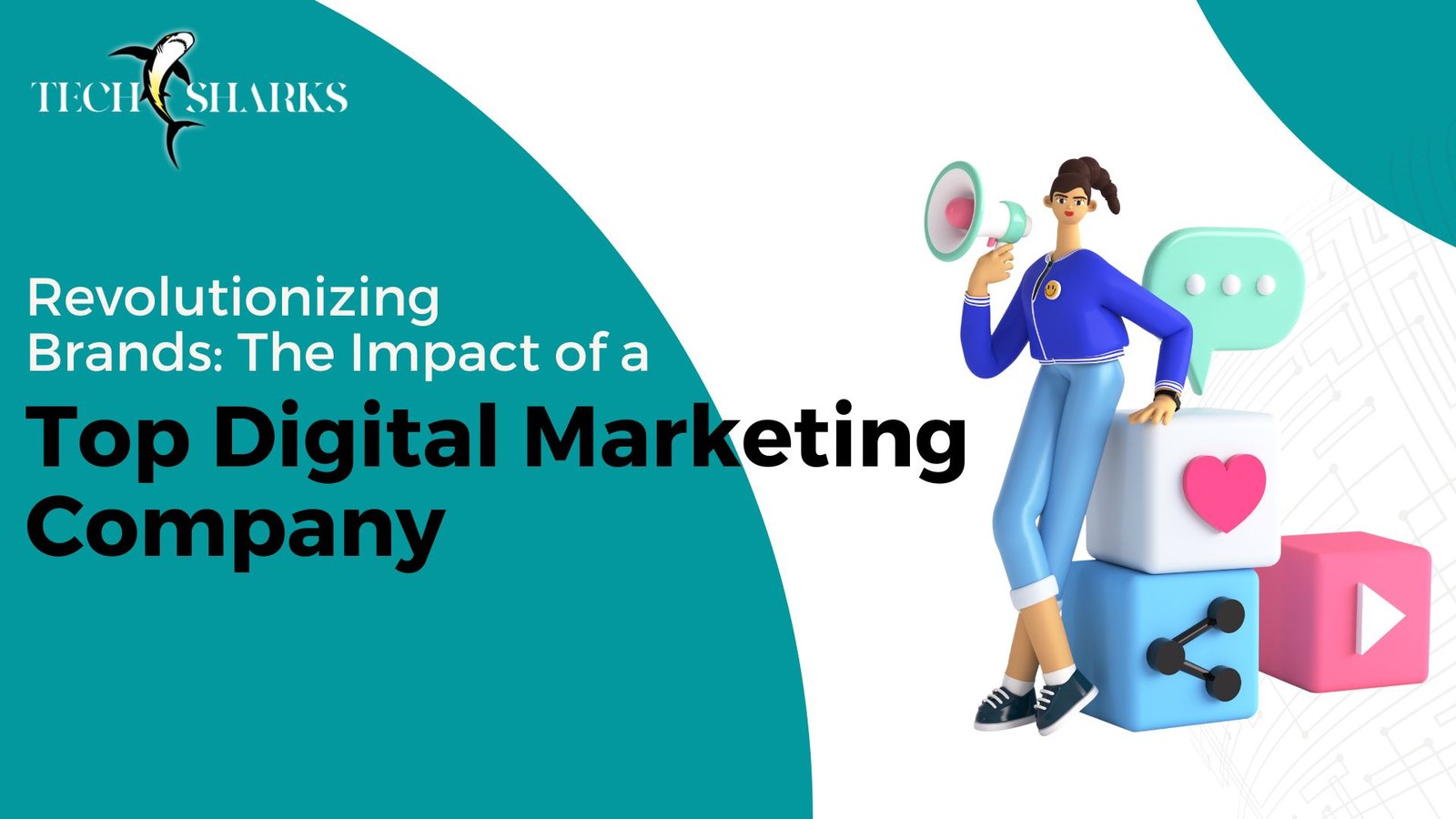
In the fast-paced world of digital marketing, AI has become the buzzword on everyone’s lips. With its ability to analyze vast amounts of data and predict consumer behavior, AI promises to revolutionize the way we approach marketing. However, as with any new technology, there are challenges to consider. In this article, we’ll explore the challenges of implementing AI into your marketing strategy and how to tackle these challenges with the right kind of marketing approach with Techsharks, an innovative digital marketing company that offers perfect services and solutions. In addition, we will discuss whether AI can truly replace the human touch. So, buckle up, and let’s dive into the world of AI marketing!
AI in Digital Marketing: The Basics
Artificial Intelligence (AI) has become a game-changer in the field of digital marketing. With its ability to analyze vast amounts of data and identify patterns, AI is transforming the way businesses approach marketing. In this article, we’ll explore the basics of AI in digital marketing and how it can benefit your business.
But, what is AI in Digital Marketing? To put it a definition: AI refers to the use of machines to perform tasks that would typically require human intelligence. In digital marketing, marketers can use AI to analyze data, predict consumer behavior, and automate marketing tasks. Some of the best ai tools for digital marketing include ai.marketing login, which offers a range of marketing tools and promotional tools. These tools can help businesses automate their marketing campaigns, analyze customer data, and create personalized marketing messages.
Examples of AI in Digital Marketing
Numerous ways are here to use AI in digital marketing, which include:
- Chatbots: AI-powered chatbots can provide personalized customer service and support, improving the customer experience.
- Predictive analytics: Predicting consumer behavior and identifying trends with the help of AI in marketing, allows businesses to adjust their marketing strategies accordingly.
- Content creation: AI can be used to create content, such as product descriptions and social media posts, based on consumer data and preferences.
- Ad targeting: AI can analyze consumer data to identify the best audience for ads and optimize ad placement.
The Challenges of the AI Marketing Approach
While AI has the potential to transform digital marketing, several challenges need to be addressed. One of the biggest challenges is the lack of human touch. AI-powered tools can automate tasks and analyze data, but they cannot replace the human touch that is needed to build relationships with customers.
Another challenge is the potential for bias. AI algorithms are only as good as the data they are trained on, and if the data is biased, the algorithm will be biased too. This can lead to discrimination and unfair treatment of certain groups of customers. Let’s discuss the main challenges of the AI marketing approach:
- AI is Not a Replacement for Human Experience
Despite the challenges of the AI marketing approach, many businesses are still embracing AI-powered tools and platforms. However, it’s important to remember that AI should not be seen as a replacement for human touch. Instead, AI should be used to enhance human capabilities and improve the customer experience because:
AI is not a replacement for human experience.
It can help you find the best content, but it can’t write it.
AI can help you find the best images, but it can’t take them.
Utilizing tools of Artificial Intelligence can create better targeting, but it can’t write the copy

- It’s Hard to Tell Whether a Bot is a Bot.
The problem is that it’s difficult to tell whether a bot is a bot. You might think you’re talking to someone who has been hired by your company, but in reality, they are just another automated piece of software designed to trick you into buying something.
It’s also important to know how you can report bots if you think one has targeted you or your business (and trust me when I say this happens more often than not). The FTC has guidelines on how companies should handle these reports so they don’t get overwhelmed by them–but if enough people report a particular account as being fake, then there may be some action taken against them for them not only protect consumers from being scammed but also themselves from legal liability down the road if anything goes wrong with those accounts.”
- Ethical Considerations
The use of AI in marketing is not without its ethical considerations. One of the biggest challenges of implementing AI into your marketing strategy is the ethical use of consumer data. With AI’s ability to analyze vast amounts of data, there is a risk of overstepping the boundaries of consumer privacy. Marketers must ensure that they are transparent about how they are collecting and using consumer data and that they are obtaining consent from consumers before collecting their data.
Another ethical consideration is the potential for bias in AI algorithms. AI algorithms are only as unbiased as the data that is fed into them. If there are biases in the data, then the algorithm will act in a similar pattern. This can lead to discriminatory marketing practices that can harm certain groups of consumers. Marketers must ensure that they are using unbiased data and algorithms to avoid any potential ethical issues.
- There are Privacy Concerns.
While it’s true that the use of AI in marketing has many benefits, there are some downsides as well. For example, there are privacy concerns. The use of personal data is not a good idea for companies that want to be able to track people’s behavior and predict their future actions. The use of AI in marketing raises concerns about data privacy and security.
In addition, AI can be used for targeted advertising on social media platforms like Facebook or Twitter by analyzing user profiles based on previous searches or posts made by other users who have similar characteristics (e.g., age group).
- It’s Expensive.
The cost of investing in AI is not insignificant. It’s expensive to hire data scientists and engineers, who can command 6-figure salaries. The software itself comes at a premium–and the more advanced your business strategy gets, the more likely it is that you’ll need to outsource some of these tasks (which also costs money).
If you don’t already have an infrastructure in place for collecting data on your customers’ behavior and preferences, then there’s another significant expense: buying information from third parties like Facebook or Google so that they can help train your AIs with their own information sets (which they will want payment for). Finally, there are maintenance costs associated with keeping these machines running smoothly over time. Now, this includes things like paying staff members who know how everything works inside-out so they can fix bugs when things break down unexpectedly during live operations (or worse yet…during testing!).
Help Businesses Improve Their Marketing Efforts for the Better!

AI can be used to improve customer experience, customer retention, customer engagement, and service. In addition to these benefits, AI is also helpful in increasing sales by providing insights that can be used for marketing campaigns or product development. It’s not a perfect solution but it can help businesses improve their marketing efforts for the better!
AI is a great tool for marketers and businesses to use, but it’s not the be-all and end-all of marketing. AI can help your company improve its marketing efforts, but you should always remember that it’s not perfect!




